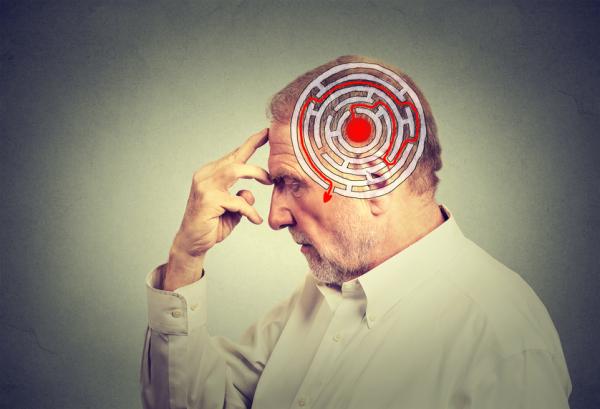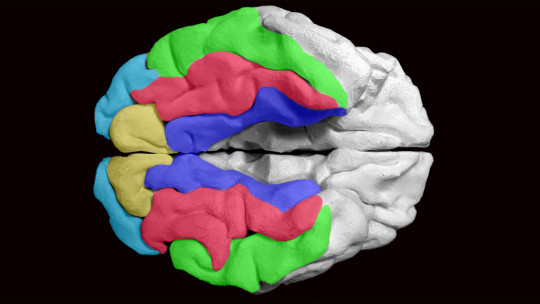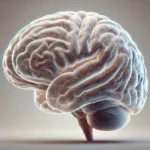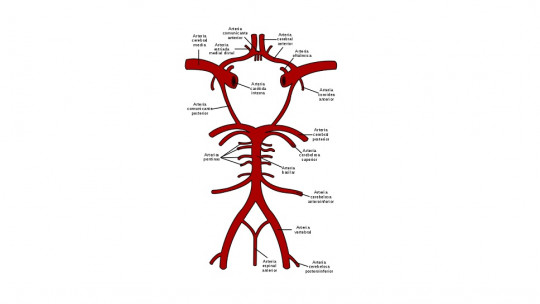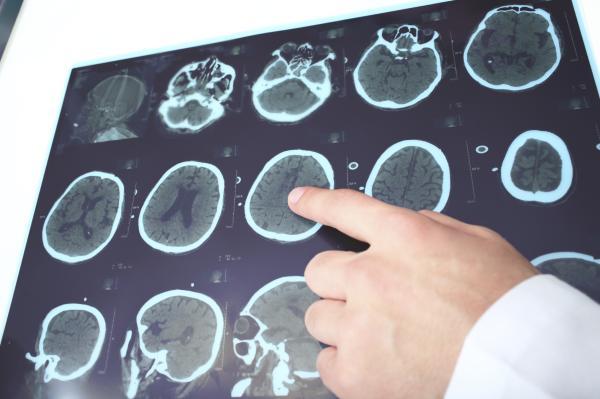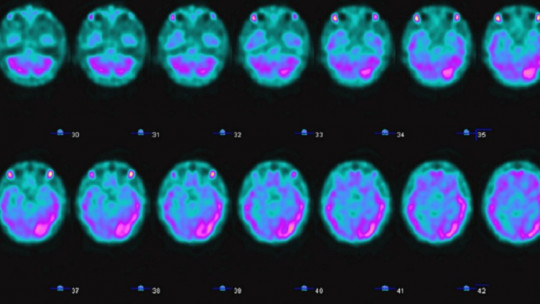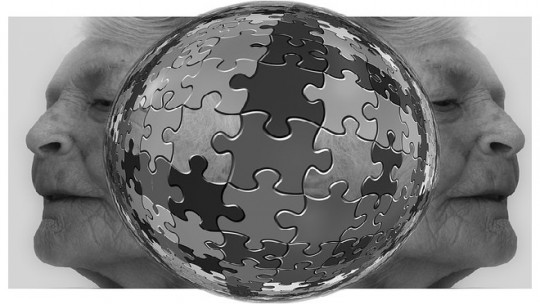Vascular dementia is a degenerative disorder that is related to the obstruction of blood vessels, which causes a progressive loss of memory and all cognitive functions. This type of disease causes the death of a large number of neurons in the brain because the person who suffers from it suffers small cerebral infarctions, which causes the nutrients and oxygen that carry the blood supply to the brain to remain blocked and/or or interrupted. People who suffer from vascular dementia have a great deterioration in their concentration, they gradually lose their abilities to carry out their daily tasks, they may feel apathetic, depressed and experience another series of symptoms typical of this type of disorder.
In this PsychologyFor article: vascular dementia: phases, symptoms and treatment, We are going to explain to you in more detail what this disease consists of.
Vascular dementia: phases
People with vascular dementia go through 7 phases or stages during their disease process. The phases they go through are the following:
- Phase I: No cognitive decline. The person who is in this phase does not experience any irregular changes. He is mentally healthy, he has no loss of memory or any other type of cognitive ability.
- Phase II: Very mild cognitive decline. In this phase, the symptoms experienced by the person are not evident since they can be considered normal forgetfulness that may be related to aging.
- Phase III: Mild cognitive decline. The person experiences memory loss that becomes increasingly evident. For example, he may begin to have difficulty remembering certain events or finding and expressing the right words in conversation.
- Phase IV: moderate cognitive decline. At this stage, the person begins to experience many difficulties concentrating, remembering things they have been told and/or situations that have happened to them in the short term, and performing their most complex daily tasks, such as the correct use and/or administration of your money, use public transport, etc. At this stage, the person usually distances themselves from friends and family and chooses to be alone because it is difficult for them to recognize their symptoms as well as interact with people.
- Phase V: Moderately severe cognitive decline. Problems with memory and cognitive abilities have become a deeper and more serious problem. The person begins to experience problems carrying out daily activities such as showering, dressing, preparing food, etc. It may also be that you do not remember your address, your telephone number, etc.
- Phase VI: Severe cognitive decline (medium dementia). People who are in this stage are unable to carry out their daily activities, so they require help to carry them out.
- Phase VII: Very severe cognitive decline (advanced dementia). At this stage, people completely lose the ability to communicate. They also need help to carry out almost all their daily activities such as eating, showering, dressing, etc. It is common for them to also lose some psychomotor skills, such as their ability to walk.

Symptoms of vascular dementia
Vascular dementia can cause damage to different parts of the brain, so the symptoms will depend on the area that has been affected. The symptoms also depend on what the cause of the disease was, although in all cases it will affect memory. It must be taken into account that the person’s age, sex and the phase in which they are located, however the most common symptoms are the following:
- Confusion. It is very common for her to be confused about everything. For example, they may not remember where they are, what they have to do, who the people around them are, among other things.
- Difficulty communicating. They have many difficulties in language, it is difficult for them to express their desires and/or emotions since they forget the words or their meanings, they also have a hard time maintaining a conversation with someone, they tend to lose the thread of the conversation easily.
- Walking with little confidence. Since they do not know where they want to go exactly and do not remember the path they should follow, they tend to walk distrustfully and slowly.
- Personality changes. The person is no longer the same, their personality, as the stages of the disease progress, changes noticeably. One of the causes may be that she is losing control of herself due to the symptoms that she is experiencing and that are increasingly incapacitating her.
- Urinary incontinence. It is very common for people who suffer from this disorder to have serious problems controlling their urge to urinate (adult enureris), so they may not realize it and many need to use protectors to prevent accidents.
- They lose logic and their common sense. Due to the memory loss they experience, forgetting words and their meanings, etc. It is increasingly difficult for them to make personal judgments in accordance with their values since these disappear over time and their short-term memory is severely affected, so they quickly forget what they have said.
- Difficulty manipulating objects. As this disease progresses, they have more difficulty remembering how to manipulate objects and what their function is.
Vascular dementia: treatment
There is no specific pharmacological treatment that has been able to demonstrate its one hundred percent effectiveness since the lesions in vascular dementia are irreversible. However, what we can do is prevent it from occurring or prevent a person who has already suffered it from doing so again. Although we cannot recover lost cognitive functions, we can help prevent or delay the progression of this disease. Some tips to help prevent vascular dementia are:
- You should try to control your blood pressure, for this it is necessary to eat a healthy and well-balanced diet.
- Avoid alcohol and tobacco consumption as much as possible.
- Avoid obesity and overweight. To do this, apart from eating a healthy diet, it is advisable to exercise (always taking into account the person’s physical situation and adapting the exercise to it).
- It is advisable that diabetic people always have control over their blood glucose and glycosylated hemoglobin levels.
- Follow your doctor’s recommendations.
This article is merely informative, at PsychologyFor we do not have the power to make a diagnosis or recommend a treatment. We invite you to go to a psychologist to treat your particular case.
If you want to read more articles similar to Vascular dementia: phases, symptoms and treatment we recommend that you enter our Neurosciences category.

